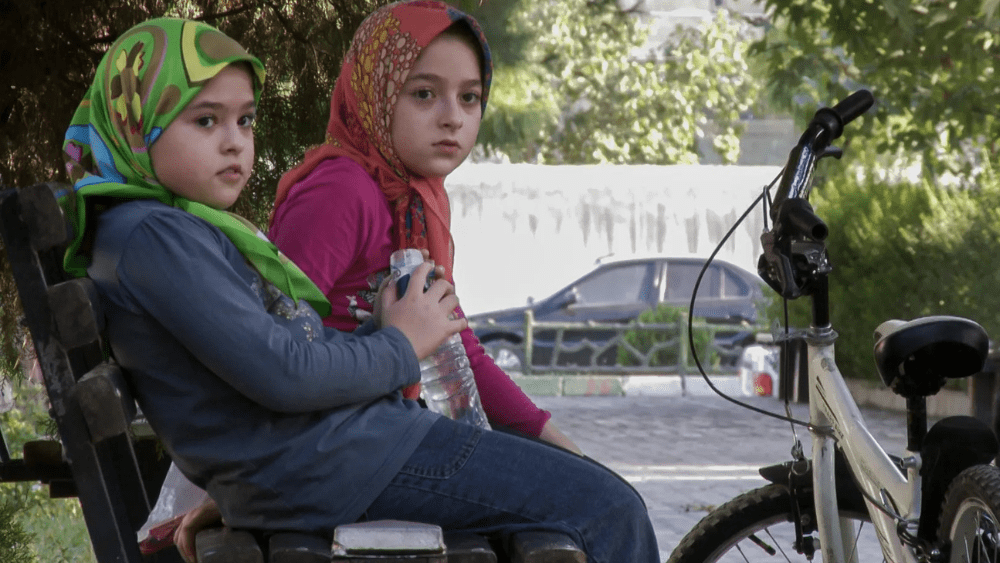For the past 20 years, filmmaker Masoud Bakshi (Yalda) has captured his two nieces growing up. As the years pass, the girls go from excitedly unwrapping custom-made Barbie dolls and running carelessly between playground bars to being weighed down by a growing political consciousness and then beautifully liberated. The culmination of years of footage is Bakshi’s “All My Sisters,” which will be premiered in competition at IDFA.
All My Sisters is a deeply personal family story, a broader political story related to the historic Women, Lives, Freedom protests in Iran in 2022, and an incisive look at the ethics of documentary. The film begins with the director preparing his two nieces to show them the material he has shot. Only those they approve will be shortlisted. In that sense, the film is both a document and an experiment, proposing complex conversations about privacy and youth in an age where smartphone cameras are on 24/7.
Speaking to Variety outside a festival in the Netherlands, Bakshi said he had the idea for the film from the moment he first started filming. Initially, the director had only planned to film the two sisters for seven years until they entered public school, but he continued filming because, “The lives of the sisters back then were more interesting.”
Despite filming for 18 years, the director was cautious about how much he filmed. Bakshi, who learned how to be a filmmaker before digital cameras were popular, says he decided to work “the same way” with an emphasis on quantity. “We had to be flexible as we had several filming sessions a year and each time we had to adjust the rough script to accommodate events such as birthdays, the start of school and New Year’s feasts.”
As for editing, Bakshi did some pre-editing to “figure out” the direction of the film, as well as to evaluate and possibly change the script along the way. “The final edit took 10 weeks over two years.”

“All My Sisters” (provided by IDFA)
Asked about the film’s format and how it touches on ethics in documentary filmmaking, the director said, “From the moment[the sisters]entered adolescence, I understood that I needed their approval to complete the film, and that this approval should be part of the structure of the film.” “I thought the best way to do it was to show them the edited material and share some of their own lives while filming their reactions. For them, seeing all these years go by in such a short period of time was both a discovery and a shock. I wanted to capture[this feeling]of discovery and incorporate it into the film.”
The director extended these conversations to his entire family, including his mother and sister. Although their faces are not shown in the documentary, their presence stands out in the daily lives of the two girls. “Their consent was my biggest moral concern,” he says. “This whole process was very challenging for me, because[Iranian]culture is about hiding, covering up, not directly revealing, exposing, showing something. But this is exactly what the film is about: looking, asking, showing. In this film, the idea of a mirror is very important and fundamental.”
Of course, these challenges gave the director reservations, but he said these questions still exist and are “not only personal, familial, and ethical, but also sociocultural.” “Almost every day of editing I thought about leaving this film unfinished, mainly because of the characters and their future lives and the impact the film could have on them. I’m grateful to them because once I showed them the film, they helped me overcome these hesitations. But I have a responsibility to this film and I know that.”
Did the making of “All My Sisters” affect Bakshi’s relationship with his nieces? Indeed, it helped the director “get to know this generation.” “Over the years[of filming]I was able to feel and breathe the slow but constant change that this generation is leading. I look up to them, I learn from them, and I love and respect them, even if they are very different from me.”
“All My Sisters” is produced by Amour Fou Vienna’s Alexander Dumreicher-Ivanceanu and Bady Minck and is a co-production with Eric Lagesse of Sampek Productions, Mohammad Farokhmanesh of Brave New Work Film Productions and Massoud Bakhshi of Bon Gah. Sales will be handled by Pyramid International.

